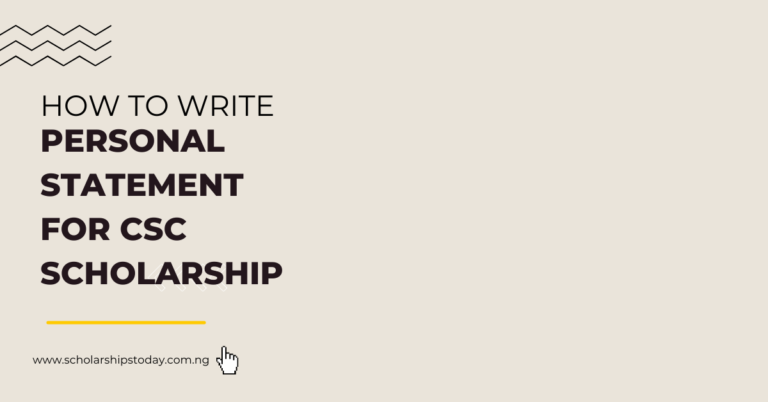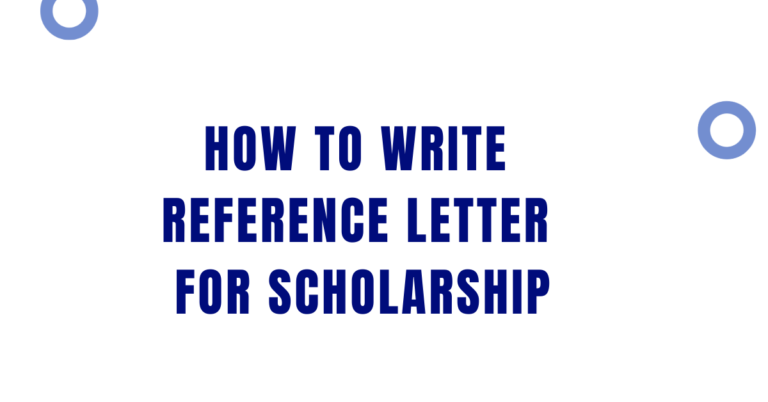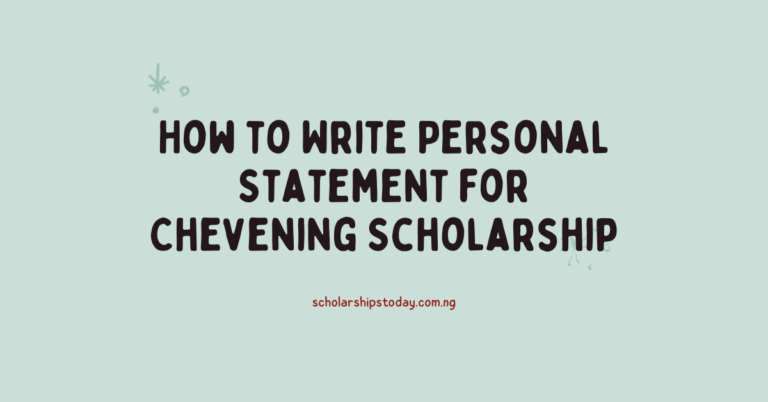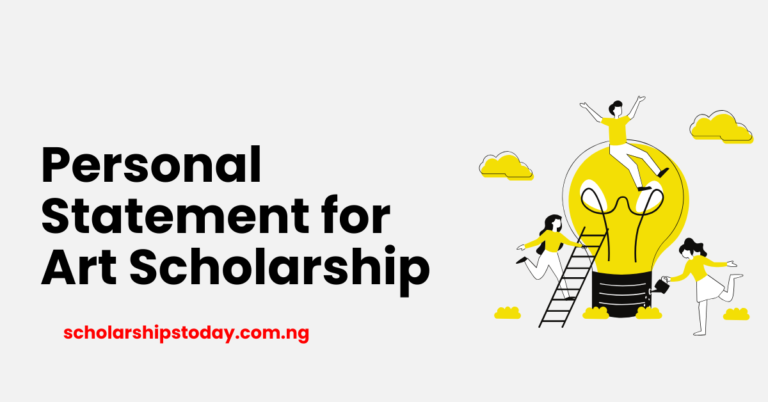Scholarships are very competitive, with hundreds and thousands of people vying for it. A personal statement is used to determine who the best and ideal candidate is. This is why you need personal statement examples for scholarship as a guide.
Regardless of how beautiful your dreams and aspirations are, if your statement for the scholarship cannot engage and ‘wow’ the reader, you risk not being selected. This is also true when crafting a 200-word, 400-word, or 500-word personal statement. The basic rule is:
- Grab the attention of the reader.
- Sustain the attention.
- Amaze the reader with your groundbreaking aspiration.
Here I’ll show you personal statement examples for scholarships that have won scholarship support in the US, the UK, and other advanced countries. I’ll also explain to you from my experience how to write a good personal statement for a scholarship.
I’ll also show you how to organize your statement, talk about your strengths, and make them match what the scholarship is looking for. And lastly, I’ll give you examples of scholarships.
How To Write Personal Statement Examples for Scholarship
Writing a personal statement for a scholarship may seem challenging. But with these practical tips, you’ll be on your way to crafting an impressive statement.

- Think about your best qualities: Consider what makes you a great candidate for the scholarship. Are you kind, determined, or creative? Highlight these traits.
- Stand out from the crowd: Identify unique attributes or skills that set you apart. Maybe you’re an excellent public speaker or a talented artist. Share these qualities.
- Highlight your accomplishments: Talk about your major achievements and why you consider them important. Did you win a science fair or help your community through volunteer work? Explain their significance.
- Overcoming difficulties: Share a challenging time in your life and how you overcame it. Show resilience and determination.
- Show your involvement outside school: Discuss extracurricular or community involvement that demonstrates your ideal qualities. Why did you choose to participate in these activities?
- Explain your academic choices: Describe why you chose your field of study and what interests you about it.
- Discuss your career aspirations: Share your future goals and dreams. Explain how your education connects to your career plans.
- Connect the scholarship to your goals: Explain how receiving the scholarship will help you achieve your personal goals.
Personal Statement Structure
To make your personal statement effective, structure it into four paragraphs following these suggestions:
Introduction:
Start with an exciting opening that tells the reader who you are. Mention any special circumstances affecting your financial need.
Read: Personal Statement for Chevening Scholarship
Body:
The second paragraph is where you explain why you are the best candidate. Discuss your reason for attending the school, course, positive qualities, and accomplishments. Talk about your work experience, leadership, and personal challenges you’ve overcome.
In the third paragraph, link your goals with the scholarship opportunities. Be specific about your future plans and how your course contributes to society.
Conclusion:
In the fourth paragraph, make a lasting impression. Explain how the scholarship would impact your education and future. Recap why you are a strong candidate and deserving of the scholarship.

Personal Statement Examples for Scholarship
Personal Statement Examples for Scholarship [Sample 1]
In a world that celebrates diversity, I have come to appreciate the power of different perspectives, experiences, and backgrounds. As an individual from a multicultural heritage, I have had the privilege of witnessing the richness that arises when cultures intersect. This has instilled in me a deep sense of appreciation for inclusivity and the value it brings to society.
Growing up, I navigated multiple cultural identities and languages, which allowed me to develop a strong sense of adaptability, open-mindedness, and empathy. These qualities have not only shaped my personal growth but have also influenced my academic pursuits and extracurricular involvements.
Recognizing the importance of cultural exchange and understanding, I actively engage in initiatives that promote diversity on campus and within my community. Through organizing multicultural events and participating in dialogue sessions, I strive to foster an environment where every voice is heard and celebrated.
Receiving this scholarship would not only validate my commitment to diversity but also provide me with the resources to further my education and contribute to initiatives that bridge cultural gaps. I am passionate about promoting cross-cultural understanding and dismantling barriers that hinder inclusivity.
With this scholarship, I would seize the opportunity to pursue my academic goals in [your chosen field of study] while continuing my advocacy for diversity and inclusion. I believe that by embracing our differences and working collaboratively, we can create a world that cherishes the beauty of diversity and fosters an environment where everyone can thrive.
Thank you for considering my application for this scholarship. I am truly grateful for the opportunity to share my experiences and aspirations, and I am committed to making a positive impact by embracing and celebrating diversity in all its forms.
Frequently Asked Questions [FAQS]
How Do You Write a Good Personal Statement for a Scholarship?
Highlight your achievements, goals, and aspirations. Be authentic, showcase your unique qualities, and relate them to the scholarship criteria. Tailor your statement to the scholarship’s requirements and proofread it to avoid errors.
What Is an Example of a Personal Statement?
An example of a personal statement could include discussing a life-changing experience, expressing passion for a particular field, and demonstrating how personal qualities align with the scholarship’s purpose. Remember to make it personal and compelling.
How Do You Introduce Yourself for a Scholarship Sample?
Start with a strong opening sentence that grabs attention. Provide relevant background information, such as your name, educational background, and major achievements. Mention your aspirations and how the scholarship can help you achieve them.
How Do You Begin a Personal Statement?
Begin a personal statement by capturing the reader’s interest with an engaging opening sentence or anecdote. Clearly state your purpose, discuss your background and experiences, and explain why you are a strong candidate. Maintain a logical flow and organize your thoughts coherently throughout the statement.
How Do You Describe Yourself in a Personal Statement?
Highlight your strengths, skills, and unique qualities. Discuss your values and passions and how they align with the scholarship’s goals. Showcase your accomplishments and experiences that have shaped your character and influenced your academic or career path.
How Do You Write a Strong Personal Statement?
Focus on clarity, authenticity, and relevance. Articulate your goals and reasons for applying for the scholarship. Support your statements with specific examples. Also, provide evidence of your skills, achievements, and dedication. Show enthusiasm and passion for your chosen field and how you can contribute to the scholarship’s mission.
What Is the Best Format for Personal Statement?
An introduction, body, and conclusion. The introduction introduces you. The body highlights your experiences, skills, goals, and a conclusion summarizing your main points. Use clear and concise language, maintain a consistent tone, and proofread for errors. Also, consider if there are specific guidelines and adapt the format.
Final Thought
Securing international scholarships requires an outstanding personal statement for the scholarship committees. Start writing by focusing on the qualities, achievements, and goals that best represent you. Explain why these attributes make you an ideal candidate for the scholarship. You can mention your role models, personal stories from a young age, and those from high school.
Also, talk about any community service you’ve been involved in and your academic achievements.
And when you’re done, proofread to edit details that don’t add up. You want to avoid being found wanting.






![5 Samples of Winning 500 Word Personal Statement for Scholarships [by Experts] - scholarshipstoday.com.ng](https://www.scholarshipstoday.com.ng/wp-content/uploads/2024/02/5-Samples-of-Winning-500-Word-Personal-Statement-for-Scholarships-by-Experts-768x402.png)